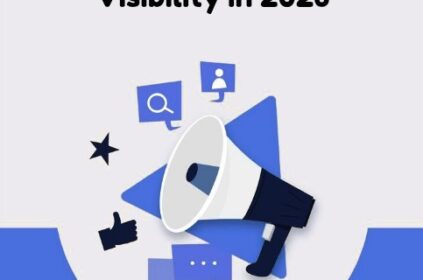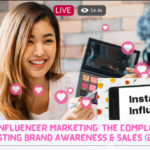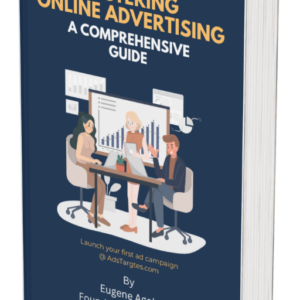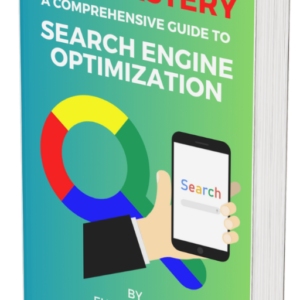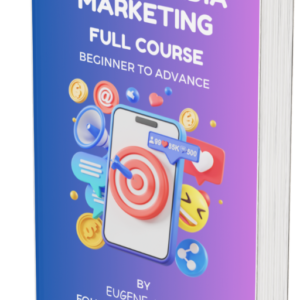In today’s digital landscape, the integration of artificial intelligence (AI) has revolutionized the way marketers engage with their audience, analyze data, and optimize campaigns. As AI technologies continue to advance, they offer unparalleled opportunities for marketers to enhance efficiency, personalize experiences, and drive better results.
However, harnessing the full potential of AI requires more than just access to cutting-edge tools—it demands a comprehensive set of skills and competencies.
But have you ever wondered what it takes to truly leverage AI in marketing? What skillset separates those who simply use AI tools from those who unlock its transformative power?
In this era of AI-driven marketing, digital marketers must equip themselves with a diverse range of skills to effectively leverage AI and stay ahead of the curve. From data literacy to ethical understanding, these skills empower marketers to navigate the complexities of AI-powered strategies, make informed decisions, and deliver impactful campaigns.
In this blog post, we’ll delve into the essential skills that digital marketers need to thrive in an AI-centric environment. By mastering these skills, marketers can unlock the transformative power of AI and drive innovation in their marketing efforts. Let’s explore the seven key skills that are indispensable for using AI effectively in digital marketing.

The 7 Skills Digital Marketers Need to Use AI Effectively
#1. Data Literacy:
In the realm of AI-driven marketing, data reigns supreme. you must possess a solid foundation in data literacy to navigate the vast ocean of information at their disposal. Data literacy involves not only understanding basic data concepts and terminology but also knowing how to interpret, analyze, and derive actionable insights from data.
With AI algorithms continuously crunching data to uncover patterns and trends, you need to be adept at extracting meaningful insights that drive decision-making. Whether it’s analyzing customer behavior, measuring campaign performance, or identifying market trends, data literacy forms the bedrock of effective AI utilization in marketing.
Marketers with strong data literacy skills can effectively leverage AI tools to sift through vast datasets, uncover hidden opportunities, and optimize marketing strategies for maximum impact.
By honing your data literacy skills, you can transform raw data into actionable intelligence, gaining a competitive edge in the dynamic world of AI-driven marketing.
Tips to Enhance Data Literacy for AI-Driven Marketing
#1. Start with the Basics: Begin by familiarizing yourself with fundamental data concepts such as variables, datasets, and statistical measures. Understand different types of data (e.g., qualitative vs. quantitative) and how they’re used in marketing analysis.
#2. Learn Data Analysis Tools: Acquire proficiency in popular data analysis tools such as Microsoft Excel, Google Sheets, or more advanced tools like Python and R. These tools are essential for organizing, analyzing, and visualizing data effectively.
#3. Take Online Courses: Enroll in online courses or tutorials that cover topics such as data analysis, statistics, and data visualization. These courses often provide structured learning paths and hands-on exercises to reinforce concepts.
#4. Practice with Real Data: Gain practical experience by working with real-world marketing datasets. Analyze customer demographics, campaign performance metrics, and market trends to extract meaningful insights.
#5. Stay Updated: Stay abreast of the latest trends and developments in data analysis and marketing analytics. Follow industry blogs, attend webinars, and participate in online communities to stay informed about emerging techniques and best practices.
#6. Collaborate with Data Experts: Collaborate with data scientists or analysts within your organization to gain insights into advanced data analysis techniques and methodologies. Learning from experts in the field can accelerate your learning process and broaden your skillset.
#7. Experiment and Iterate: Don’t be afraid to experiment with different analytical approaches and methodologies. Test hypotheses, conduct A/B tests, and iterate on your analysis to refine your skills and uncover new insights.
Recommended Courses:
#1. Google Analytics Academy: Offers free online courses covering topics such as Google Analytics for Beginners, Advanced Google Analytics, and Google Analytics for Power Users. Website: analytics.google.com/analytics/academy/
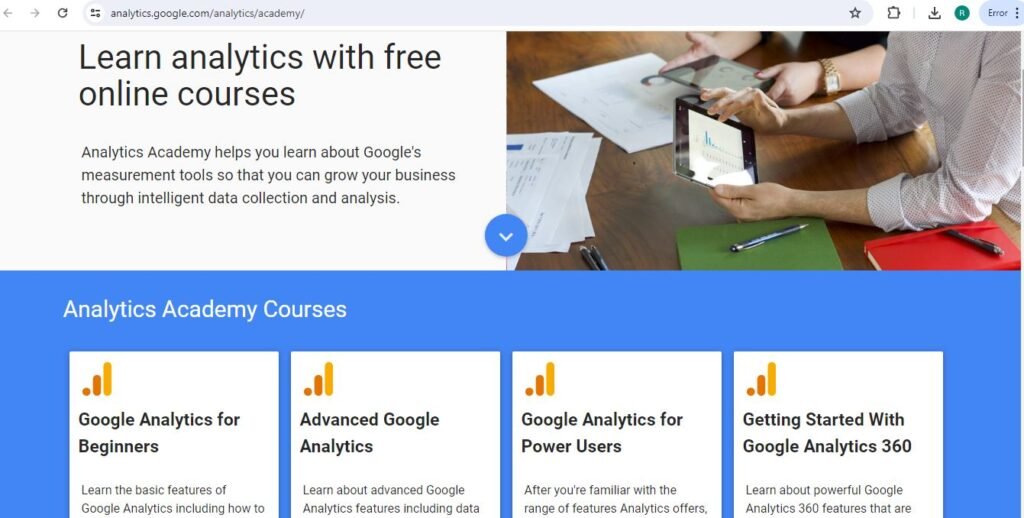
#2. Coursera – Data Science Specialization: A series of courses offered by Johns Hopkins University covering data analysis, statistical inference, machine learning, and data visualization using R. Website: coursera.org/specializations/jhu-data-science
#3. LinkedIn Learning – Data Analytics for Marketing Insights: This course covers how to use data analytics tools and techniques to derive actionable insights for marketing purposes. Website: linkedin.com/learning/data-analytics-for-marketing-insights
#4. DataCamp – Introduction to Python for Data Science: An interactive course that introduces Python programming and its applications in data analysis, including data manipulation, visualization, and statistical analysis. Website: datacamp.com/courses/intro-to-python-for-data-science
By following these tips and investing in relevant courses, you can enhance your data literacy skills and harness the power of data to drive informed decision-making and optimize marketing strategies effectively.
#2. Critical Thinking:

Critical thinking is essential for evaluating the validity and relevance of insights generated by AI algorithms in marketing. you need to approach AI-driven recommendations with a discerning eye, questioning assumptions and assessing the potential impact on campaign performance. Here are some tips to enhance critical thinking skills in the context of AI-driven marketing:
Tips to Enhance Critical Thinking
#1. Question Assumptions: Challenge underlying assumptions and biases in AI-generated insights. Consider factors such as data quality, sample size, and algorithmic limitations that may influence the accuracy of recommendations.
#2. Verify Sources: Verify the credibility and reliability of data sources used by AI algorithms. Scrutinize the integrity of datasets and assess whether they accurately represent the target audience or market segment.
#3. Consider Alternative Explanations: Explore alternative explanations and hypotheses that may account for observed patterns or trends in the data. Adopt a hypothesis-driven approach to testing assumptions and validating AI-generated insights.
#4. Evaluate Risks and Benefits: Assess the potential risks and benefits associated with implementing AI-driven recommendations in marketing campaigns. Consider factors such as ethical considerations, potential biases, and unintended consequences of algorithmic decision-making.
#5. Seek Diverse Perspectives: Foster a culture of diversity and inclusion within marketing teams to encourage different viewpoints and approaches to problem-solving. Collaborate with colleagues from diverse backgrounds to gain insights and perspectives that may challenge conventional thinking.
#3. Creativity:
Creativity plays a crucial role in crafting compelling campaigns that resonate with audiences. While AI algorithms excel at processing data and generating insights, human creativity remains unmatched in ideating innovative concepts and engaging storytelling. Here are some tips to enhance creativity and leverage AI as a tool for marketing innovation:
Tips to Enhance Creativity:
#1. Embrace AI as a Creative Tool: View AI not as a replacement for creativity, but as a catalyst for innovation. Explore how AI technologies, such as natural language generation and image recognition, can inspire creative ideas and streamline content creation processes.
#2. Combine Data and Creativity: Integrate data-driven insights with creative brainstorming sessions to develop marketing strategies that are both data-driven and compelling. Use AI-generated insights to inform creative concepts and tailor messaging to specific audience segments.
#3. Experiment with AI-Generated Content: Leverage AI tools to generate content ideas, headlines, and visual elements that spark creativity. Experiment with AI-powered platforms that generate music, artwork, or copy variations based on predefined criteria, allowing marketers to explore new creative directions.
#4. Encourage Cross-Disciplinary Collaboration: Foster collaboration between marketers, data scientists, and creative professionals to combine expertise from different disciplines and generate innovative ideas. Create cross-functional teams that leverage the strengths of each member to drive creative excellence.
#5. Stay Curious and Open-Minded: Cultivate a mindset of curiosity and exploration, constantly seeking inspiration from diverse sources and experimenting with new creative approaches. Remain open to unconventional ideas and feedback, embracing failure as a learning opportunity in the creative process.
Recommended Course
Udemy – Creativity and Innovation for Business: This course offers practical strategies for fostering creativity and driving innovation in business contexts, including techniques for brainstorming, problem-solving, and idea generation. Website: udemy.com/course/creativity-and-innovation-for-business
By embracing creativity and leveraging AI as a tool for innovation, you can develop captivating campaigns that captivate audiences and drive meaningful engagement. Through experimentation, collaboration, and an openness to new ideas, you can harness the combined power of AI and creativity to achieve marketing excellence.
#4. Adaptability:
In the rapidly evolving landscape of AI-driven marketing, adaptability is key to staying ahead of the curve and leveraging emerging technologies effectively. You must be willing to embrace change, continuously learn new skills, and adapt your strategies to meet evolving consumer preferences and market dynamics. Here are some tips to enhance adaptability and thrive in an AI-centric marketing environment:
Tips to Enhance Adaptability:
#1. Stay Informed About AI Trends: Keep abreast of the latest developments and trends in AI technologies relevant to marketing. Follow industry publications, attend webinars, and participate in conferences to stay informed about emerging AI tools and techniques.
#2. Embrace Lifelong Learning: Cultivate a mindset of continuous learning and professional development, seeking opportunities to acquire new skills and knowledge relevant to AI-driven marketing. Enroll in online courses, workshops, or certification programs to expand your expertise in AI technologies and their applications in marketing.
#3. Experiment with New Tools and Platforms: Be willing to experiment with new AI tools and platforms to explore their potential for enhancing marketing performance.
Test different AI-driven solutions, such as predictive analytics, personalization engines, or chatbots, to identify opportunities for innovation and optimization.
#4. Adapt Strategies Based on Data Insights: Use AI-generated insights to inform strategic decision-making and adapt marketing strategies in real-time. Monitor key performance indicators (KPIs) and metrics to identify areas for improvement and adjust tactics accordingly to maximize ROI.
#5. Foster a Culture of Innovation: Encourage a culture of innovation within your marketing team, where experimentation and risk-taking are celebrated. Create opportunities for cross-functional collaboration and knowledge sharing to foster creativity and adaptability among team members.
By embracing adaptability and continuously learning and experimenting with AI-driven technologies, you can position yourself for success in an ever-changing digital landscape.
By leveraging AI insights to inform strategic decision-making and fostering a culture of innovation, marketers can drive growth and achieve sustainable competitive advantage in the marketplace.
#5. Collaboration:

Collaboration is essential for harnessing the full potential of AI in marketing. In a multidisciplinary field like AI-driven marketing, effective collaboration between marketers, data scientists, AI specialists, and other stakeholders is critical for achieving synergy and driving innovation. Here are some tips to enhance collaboration and maximize the impact of AI in marketing efforts:
Tips to Enhance Collaboration:
#1. Foster Cross-Functional Teams: Create cross-functional teams comprising marketers, data scientists, AI specialists, and other relevant stakeholders. Encourage collaboration and knowledge sharing among team members to leverage diverse expertise and perspectives.
#2. Establish Clear Communication Channels: Establish clear communication channels and workflows to facilitate seamless collaboration between team members. Use project management tools, collaboration platforms, and regular meetings to ensure alignment and transparency.
#3. Define Roles and Responsibilities: Clearly define roles and responsibilities within cross-functional teams to ensure clarity and accountability. Assign specific tasks and projects to team members based on their expertise and skill sets, leveraging their strengths to achieve collective goals.
#4. Encourage Knowledge Sharing: Promote a culture of knowledge sharing and continuous learning within the organization. Encourage team members to share insights, best practices, and lessons learned from AI-driven initiatives to foster collaboration and drive innovation.
#5. Embrace Diversity and Inclusion: Embrace diversity and inclusion within cross-functional teams, recognizing the value of different perspectives and experiences. Encourage participation from individuals with diverse backgrounds, skills, and viewpoints to enrich collaboration and creativity.
Recommended Courses:
#1. Coursera – Collaboration and Communication in Business: This course explores effective strategies for collaboration and communication in business settings, covering topics such as teamwork, conflict resolution, and virtual collaboration. Website: coursera.org/learn/collaboration-communication-business
#2. LinkedIn Learning – Collaboration Principles and Practices: A course designed to help individuals develop collaboration skills and foster effective teamwork in diverse environments. It covers principles and practices for successful collaboration, including communication, problem-solving, and decision-making. Website: linkedin.com/learning/collaboration-principles-and-practices
#3. edX – Leading Collaboration in the Digital Age: This course offers insights into leading collaboration initiatives in the digital age, covering topics such as virtual teamwork, remote collaboration tools, and cross-functional collaboration strategies. Website: edx.org/professional-certificate/leading-collaboration-in-the-digital-age
Through effective communication, role clarity, and knowledge sharing, organizations can drive innovation and achieve greater impact in their AI-driven marketing initiatives.
#6. Ethical Understanding:
Ethical considerations are paramount in the implementation of AI-driven marketing strategies. As AI technologies become more sophisticated, marketers must prioritize ethical practices to ensure transparency, fairness, and respect for consumer privacy. Here are some tips to enhance ethical understanding and promote responsible AI usage in marketing:
Tips to Enhance Ethical Understanding:
#1. Understand Ethical Implications: Educate yourself about the ethical implications of AI in marketing, including issues such as bias, privacy, and algorithmic accountability. Stay informed about ethical frameworks and guidelines relevant to AI usage in marketing, such as the IEEE Global Initiative on Ethics of Autonomous and Intelligent Systems.
#2. Prioritize Transparency: Prioritize transparency in AI-driven marketing initiatives by clearly communicating how AI technologies are being used to collect and analyze data, make decisions, and personalize experiences for consumers. Provide consumers with clear explanations of data usage and give them control over their data through opt-in/opt-out mechanisms and privacy settings.
#3. Mitigate Bias and Discrimination: Take proactive measures to mitigate bias and discrimination in AI algorithms used for marketing purposes. Regularly audit AI models for biases and take steps to address any identified issues through data preprocessing, algorithmic adjustments, and diversity-aware training data collection.
#4. Respect User Privacy: Respect user privacy and data protection regulations by implementing robust data security measures and obtaining explicit consent from users before collecting and processing their personal information.
Adhere to applicable privacy laws, such as the General Data Protection Regulation (GDPR) in the European Union, and adopt privacy-preserving technologies to safeguard user data.
#5. Promote Fairness and Inclusivity: Promote fairness and inclusivity in AI-driven marketing campaigns by ensuring equitable treatment of diverse demographic groups and avoiding discriminatory targeting practices. Strive to create marketing content and experiences that resonate with a diverse audience and reflect inclusive values.
By prioritizing ethical understanding and adopting responsible AI practices, you can build trust with consumers, mitigate risks, and uphold ethical standards in their AI-driven marketing endeavors.
Through transparency, fairness, and respect for user privacy, organizations can demonstrate their commitment to ethical AI usage and contribute to a more ethical and inclusive digital ecosystem.
#7. Continuous Learning:
In the fast-paced world of AI-driven marketing, continuous learning is essential for staying updated on the latest trends, technologies, and best practices. Marketers must embrace a mindset of lifelong learning and actively seek out opportunities to expand their knowledge and skillset in AI and related disciplines.
Here are some tips to foster a culture of continuous learning and professional development in AI-driven marketing:
Tips to Enhance Continuous Learning:
#1. Stay Curious and Inquisitive: Cultivate a mindset of curiosity and inquisitiveness, actively seeking out new information and insights related to AI and its applications in marketing. Stay curious about emerging technologies, industry trends, and innovative marketing strategies, and be open to exploring new ideas and perspectives.
#2. Set Learning Goals: Set specific learning goals related to AI and digital marketing, such as mastering a new AI tool or technology, acquiring a new skill, or earning a certification in AI or data analytics. Break down your goals into manageable tasks and create a plan to achieve them over time.
#3. Invest in Continuous Education: Invest in formal education and training programs to deepen your knowledge and expertise in AI-driven marketing. Enroll in online courses, workshops, or seminars offered by reputable institutions, industry organizations, or professional associations to expand your skillset and stay updated on the latest developments in AI.
#4. Engage in Hands-On Practice: Apply your learning through hands-on practice and experimentation with AI tools and technologies. Seek out opportunities to work on real-world projects or case studies that allow you to apply theoretical concepts to practical problems and challenges in marketing.
#5. Stay Connected with the Community: Join online forums, discussion groups, or professional networks focused on AI and digital marketing to connect with peers, share knowledge, and exchange ideas. Engage in discussions, ask questions, and learn from the experiences of others in the community to enrich your learning journey.
Through ongoing education, hands-on practice, and engagement with the broader community, you can continuously enhance your skills and expertise to drive innovation and success in your AI-driven marketing initiatives.
Conclusion:
In the dynamic landscape of AI-driven marketing, the ability to leverage artificial intelligence effectively has become a cornerstone of success for digital marketers. As AI technologies continue to advance, marketers must equip themselves with a diverse range of skills and competencies to harness the full potential of AI and drive meaningful results in their marketing efforts.
From data literacy to ethical understanding, critical thinking to adaptability, the skills outlined in this blog post form the foundation for success in AI-driven marketing. By mastering these skills, you can navigate the complexities of AI technologies, make informed decisions, and deliver impactful campaigns that resonate with your target audience.
In conclusion, by cultivating the skills outlined in this blog post and fostering a culture of continuous learning and collaboration within your organization, you can unlock the transformative power of AI and achieve success in the ever-changing landscape of digital marketing.
Thank you for reading, and we hope this blog post has provided valuable insights and inspiration for your journey in AI-driven marketing. Remember, the future of marketing belongs to those who embrace innovation, adaptability, and lifelong learning. Here’s to your success in the exciting world of AI-driven marketing!





